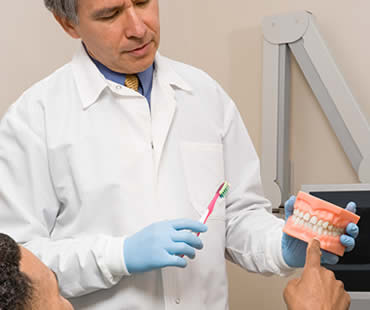
The school year has started and kids are busy with school, sports, and social activities. It’s a challenge sometimes to get your kids to eat healthy when they are on-the-go, not only for their overall health but also for their oral health. Here are some tasty and healthy snacks that you can offer your kids, and chances are they’ll like them!
Yogurt
Dairy foods help build strong bones, and they’re also great for a strong mouth. Eating low-fat yogurt provides calcium. Try mixing it with berries and granola for a healthy parfait, or making homemade fruity yogurt popsicles to attract your children’s attention.
Cheese
Besides providing calcium, cheese helps fight cavities. It triggers saliva production, which washes away food particles in your mouth and the acids that can weaken your teeth. In these ways, cheese halts the process of cavity formation. Cheese not only contains calcium but also phosphorous, which both help rebuild the enamel on your teeth.
Blueberries
These berries may be small, but they’re packed with Vitamin C, minerals, and folic acid. They also contain ingredients which studies show help prevent diabetes and cancer. Try adding blueberries to pancakes and muffins, or sprinkling them with a small amount of sugar and topping them with whipped cream.
Almonds
Nuts like almonds contain ingredients to fight diseases, as well as Vitamin E, fiber, calcium, and iron. Most kids enjoy eating almonds raw, but remember they are a choking hazard for young children.
Whole wheat bread
Bread made with whole wheat provides kids with iron, zinc, magnesium, and vitamins. Whole grain cereal offers calcium, fiber, and vitamins. Enjoying these whole wheat snacks with milk provides an even healthier snack for your kids.
We look forward to seeing you in our Haymarket dental office

Beautiful smiles with sparkling, straight teeth are common sights these days. Many people seek various treatments to help improve the appearance of their smile, and one of the popular choices is dental veneers. Read more to find out about this quick and painless way to transform your look, and obtain a smile that others envy.
Description
A very thin porcelain shell is permanently attached to the fronts of your teeth with a durable dental adhesive. Veneers are stain resistant and can be as white as you choose. These natural-looking restorations can hide chipped teeth, gaps, misaligned teeth, and discolorations.
Procedure
A small amount of your tooth enamel is removed to allow your dentist to properly place your veneers. A model of your teeth is created to be used to create perfect veneers customized to your mouth. On your next dental visit, a solution will be placed on your teeth to promote bonding. Then the veneers are firmly attached, and there is no downtime or recovery necessary.
Maintenance
Veneers should be treated like your natural teeth. That means they can be damaged by chewing hard objects like ice or biting your nails. Dental hygiene tasks remain the same. Dentists recommend that you brush twice a day and floss daily to clean your teeth and gums, and to prevent plaque buildup and tooth decay. Maintain regular checkups at your dentist for examinations and cleanings. If properly cared for, your veneers should last many years.
We treat patients from Haymarket and the surrounding area

When you are having a baby, you have a lot of your mind. Most expectant moms have to worry about doctor’s appointments, prenatal vitamins, morning sickness, and picking out names. It’s important to take good care of yourself during this special time. One area that may fall by the wayside is oral health.
Though you may not think it’s a priority, your dental health can impact your pregnancy. Because hormone levels are so high during pregnancy, you may be more susceptible to problems with gum disease. Studies have shown that untreated gum disease can contribute to pre-term births and low-birth weight babies.
Protect your wellbeing and your unborn child by:
- Eat a balanced diet. Include foods that are rich in calcium, which will keep your dentition strong and help with your baby’s developing teeth.
- Take time to brush and floss teeth daily. This kind of home routine may help prevent bleeding gums, which often flare up during pregnancy.
- Watch the snacks. You may need to eat more frequently, but try to choose healthy options like fruits, veggies, and whole grains so that you are less likely to develop cavities.
- See your dentist for a checkup. After the first trimester, make an appointment for a cleaning and exam. Though you won’t want to schedule X-rays or repairs during pregnancy, routine dental care is important and shouldn’t be avoided.
- If an emergency situation does occur, contact your dentist right away. Remind the office that you are pregnant so that they can take precautions to ensure the safety of you and your baby.
General dentist in Haymarket

Everyone knows that tobacco is harmful to your health, but many people believe that smokeless tobacco doesn’t fall into the same category. Just because it’s smokeless doesn’t mean it’s harmless. It’s dangerous for your overall health, but also for your oral health. Here are some possible oral health outcomes of using smokeless tobacco.
Tooth decay
Smokeless tobacco contains sugar, which combines with the plaque on your teeth to damage your tooth enamel and cause decay.
Receding gums
Placing chewing tobacco in your mouth at the same spot over and over can permanently damage your gums. It can also harm your bone structure. Your irritated gums may pull away from your teeth, expose your tooth roots, and leave your teeth painful and susceptible to decay. Receding gums sometimes also loosen your teeth and cause them to eventually fall out.
Tooth discoloration
Smokeless tobacco stains your teeth, causing embarrassing yellow and brown discoloration. It is extremely difficult to remove with normal brushing, and even professional teeth whitening may not completely remove these stubborn stains.
Bad breath
Your breath will suffer from tobacco products of any kind. Don’t be fooled into thinking that mint-flavored smokeless tobacco hides the problem.
Tooth abrasion
Smokeless tobacco can be gritty and scratch your teeth, wearing down the enamel. Loss of tooth enamel increases sensitivity and may require treatment.
Cancer
The consistent placement of tobacco inside your gums and the irritating juices accompanying it can cause a pre-cancerous condition called leukoplakia. All smokeless tobacco contains cancer-causing agents, which subject users to higher cancer risk in the oral cavity, larynx, esophagus, and pharynx.
We treat patients from Haymarket and the surrounding area

If you haven’t been to the dentist in a while, you may not recall the process for a regular checkup. These visits are an important part of your oral health care. If you are in good dental health, your dentist will probably suggest twice-yearly visits. Individuals with gum disease or other oral health concerns may need to schedule more frequent appointments. Feel free to ask your dentist questions or raise concerns at the visit.
Your dental checkup will usually include:
• Full Health History
Because oral health affects your overall wellness, your dentist will want to have a complete picture of your whole situation. A member of the dental team will ask you questions and gather relevant details about your present status. Make sure to provide helpful information like current medications and any pressing issues.
• X-Rays
Typically, your dentist will take X-rays about once a year. These images provide a clear view of your teeth and gums. Often, X-rays will identify problems, like impacted teeth, cysts, abscesses, or decay between teeth that might otherwise go undiagnosed.
• Complete Evaluation
During your checkup, the dentist will perform a periodontal assessment, bite analysis, and tooth-by-tooth inspection. If the dentist discovers a problem, your provider will make treatment recommendations to address the issue and restore your oral health.
• Thorough Cleaning
If everything checks out, the hygienist will typically remove plaque and tartar build-up from your teeth. At this time, the hygienist may also polish and floss teeth to refresh your smile.
We treat patients from Haymarket and the surrounding area

A special area of dentistry has been formed that focuses on making your smile as flawless and appealing as possible. Cosmetic dentistry corrects imperfections that cause people to feel insecure and unhappy with their smiles. If you are one of those people, maybe it’s time to see a cosmetic dentist to give you back your smile and confidence. Here are some of the most common reasons for visiting a cosmetic dentist.
One of the biggest complaints that people have about their smile is the color of their teeth. Stains can cause your teeth to become yellow or brown with time, making your smile unattractive and embarrassing. Cosmetic dentists offer teeth whitening techniques that brighten your teeth, and can restore your pearly whites in just one appointment.
Gaps in your smile from missing teeth not only look awkward, they also make chewing and speaking more difficult. A cosmetic dentist can replace your missing teeth with dental implants, bridges, or dentures. Implants have become increasingly popular because they provide a permanent, comfortable, and natural-looking solution for missing teeth.
Cosmetic dentists can solve a variety of other imperfections that make you unhappy with your smile. Veneers improve the shape and color of your teeth by covering the fronts of your teeth with thin shells. Dental fillings and root canals resolve problems often linked to tooth decay. Crowns are used to cover an unhealthy tooth and restore its strength, shape, size, and appearance. They also may be used in conjunction with dental bridges to correct gaps in your smile.
There is no reason to go through life ashamed of your teeth. Make an appointment with a cosmetic dentist to see how your smile can be improved to get the bright, beautiful smile you desire.
Contact us today to schedule your cosmetic dentistry consultation in our Haymarket dental office.










